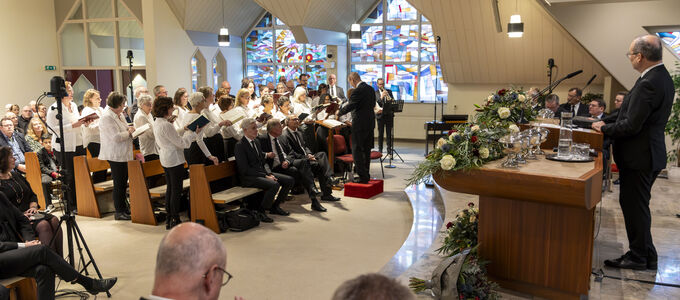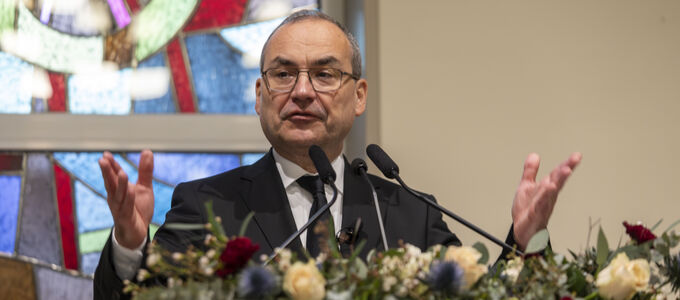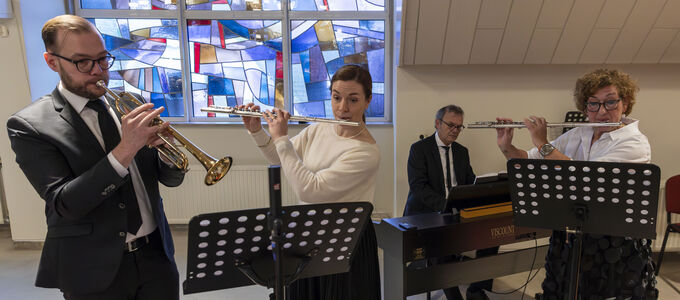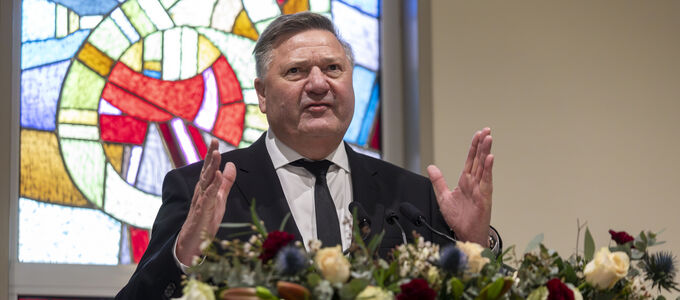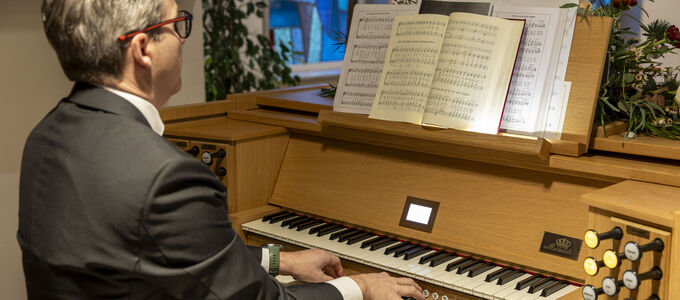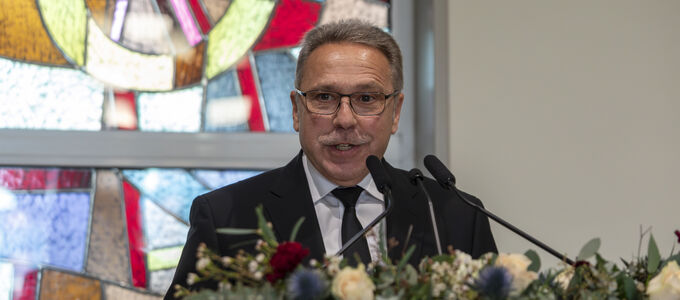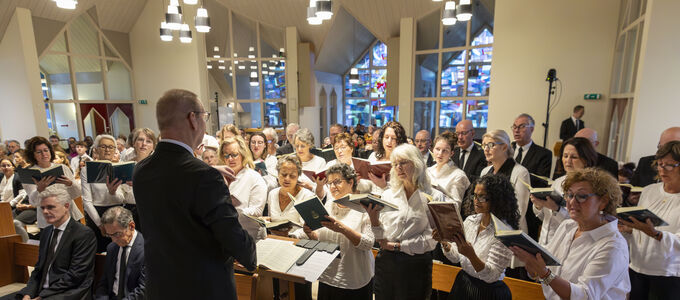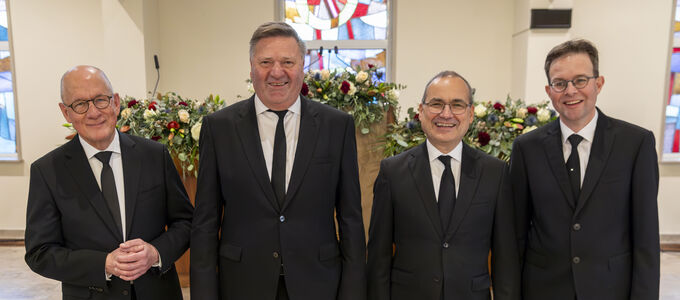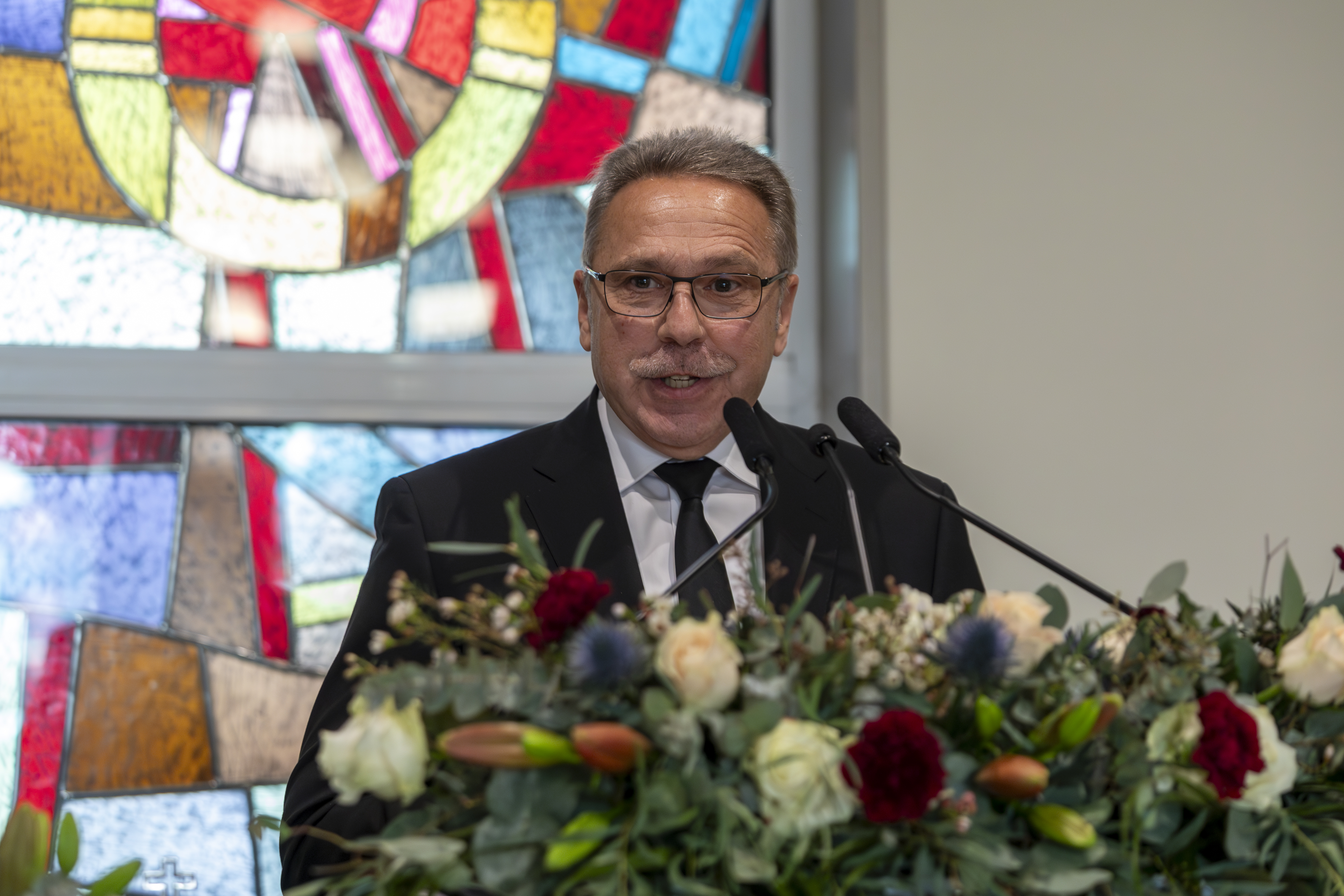A moment of church as Jesus desires it
Divine service celebrates the encounter between God and human beings. And Holy Communion is the central act. It serves as a model for today and gives a foretaste of tomorrow. Here is what makes this fellowship what it is.
The words with which Jesus introduced the Lord’s Supper were the focus of a divine service in Hoorn in the Netherlands on 14 January 2024: “And He took bread, gave thanks and broke it, and gave it to them, saying, ‘This is My body which is given for you; do this in remembrance of Me.’ Likewise He also took the cup after supper, saying, ‘This cup is the new covenant in My blood, which is shed for you’” (Luke 22: 19–20).
“We believe that every time the congregation celebrates Holy Communion, the Lord Jesus is present,” Chief Apostle Jean-Luc Schneider said. “For one thing, because He said, ‘For where two or three are gathered together in My name, I am there in the midst of them’” (Matthew 18: 20). We also believe that where the Apostles and the ministers commissioned by them are active in the authority of Jesus Christ and celebrate Holy Communion, the Son of God is present in body and blood.”
But what does that mean for us, the Chief Apostle asked and went on to explain.
- Jesus Christ invites us: “We did not choose Him, He chose us. He is the one who does the inviting and decides who is invited. And whoever is sitting next to us, our brother, our sister, has just as much right to this fellowship as we do.”
- Jesus Christ is truly present: “The body is a symbol of His life. The blood is a symbol of His sacrifice. Let us celebrate Holy Communion in the awareness that He is in our midst and tells us, ‘Think of what I did and taught when I was in this world. Remember what I accomplished on the cross through My sacrifice.’”
- Jesus Christ gives us the bread: “This bread is eternal life. You cannot earn eternal life, you cannot attain it through your efforts or what you have achieved. It is grace, a gift from God.”
“So what do we do now? How do we respond?” the Chief Apostle asked and went on to explain.
- We thank Jesus Christ: “We thank Him for the salvation He grants us. We thank Him for the wonderful future He has provided for us. This belongs to Holy Communion: we come together to thank Jesus Christ.”
- We eat the bread and drink the wine: “When we eat food in the natural, it is converted and helps with growth and development. By receiving Holy Communion, the new creation within us can grow, and we can grow into the image of Jesus Christ.”
- We have fellowship with the body and blood of Jesus Christ: “We have fellowship with His body, in other words, with His life in the sense that we no longer live for ourselves, but for Him, and serve Him. To have fellowship with His blood, His sacrifice, means: we want to give up those things that are not compatible with Him.
And then Holy Communion takes on a very special meaning.
- As an example for today’s congregation: “Our fellowship with God and with one another is still imperfect. But in the congregation that celebrates Holy Communion, God demonstrates, ‘This is the way it should be. At that moment you are one and that is the kind of fellowship I want.’”
- As a foretaste of our eternal fellowship: “The congregation is cleansed and sanctified through the forgiveness of sins. It is gathered around the Lord and He gives the bread to each one. Everyone receives exactly the same: the same love, the same host, the same bread—a foretaste of eternal fellowship, where the bride of the Lord will have been cleansed and sanctified through Him. Perfect fellowship with God and with one another, and everyone receives the same from God, or rather everyone receives everything from God.”
Article info
Author:
Date:
Keywords:
Andreas Rother
18.04.2024
Netherlands,
Chief Apostle,
Divine service


